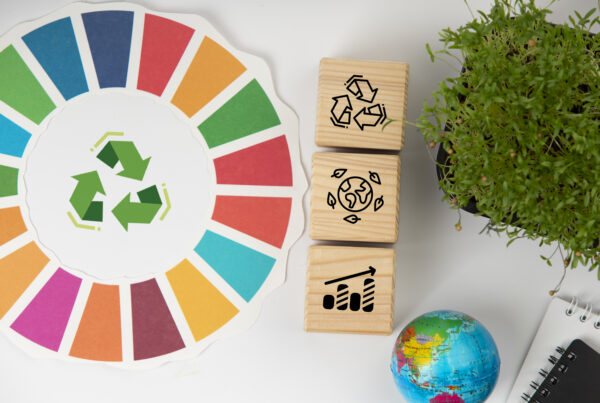What comes to mind when you hear the term ‘sustainability’?
Although essential, sustainability encompasses much more than preserving the environment by reducing the use of plastics, energy consumption, or waste management ♻️.
Sustainability extends to every aspect of our lives, from our daily habits to how businesses operate and how we relate to each other.
Next, we will explore the concept of comprehensive sustainability and how it applies to various aspects of everyday life.
⇒ Sustainability in daily life:
How can we be sustainable in our daily lives, beyond simply recycling or reducing our plastic consumption?
- Reduce food waste; plan your meals, estimate your portions, and make a shopping list to acquire only what is necessary.
- Use eco-friendly transportation, such as walking, cycling, or public transportation.
- Opt for local and seasonal products and support companies with sustainable practices.
- Before making non-essential purchases, ask yourself: Do I really need this product? What do I need it for? Where does it come from and how is it made? What was the environmental impact of its production and transportation to reach this point? What happens to this product or its packaging after is used?
These actions, though small, are a significant contribution and a great example for others. It’s about adopting a conscious approach to each action and decision, considering its impact on all areas of our lives and on future generations.
⇒ Sustainability in business:
For a business to be truly sustainable, it’s not enough to simply adopt ecological practices. It must also consider aspects such as economic equity, social responsibility, and ethical governance.
Corporate sustainability involves creating long-term value for the company and its employees, customers, suppliers, and the community at large. This entails making ethical decisions in all areas of operation, from the supply chain to human resources policies.
⇒ Sustainability in personal relationships:
Personal relationships also require sustainability to thrive in the long term. This involves cultivating empathy, effective communication, and mutual commitment.
Sustainable relationships are based on mutual respect, trust, and ongoing support; caring for the needs of our loved ones and the community at large. Sustainability in personal relationships involves a constant commitment to personal growth and shared development.
⇒ Sustainability at work:
In the workplace, sustainability involves creating safe, inclusive, and equitable working environments. This means ensuring fair wages, decent working conditions, and professional development opportunities for all employees.
It also involves promoting diversity and gender equality, as well as fostering an organizational culture based on transparency and ethics.
Sustainable companies not only care about maximizing their profits, but also about the well-being and satisfaction of their employees.
🌱 Holistic sustainability urges us to act with awareness, responsibility, and compassion in all our actions and decisions, considering their impact on our lives, the environment, and future generations. By doing so, we can build a more equitable, prosperous, and sustainable world for all 🌎.







